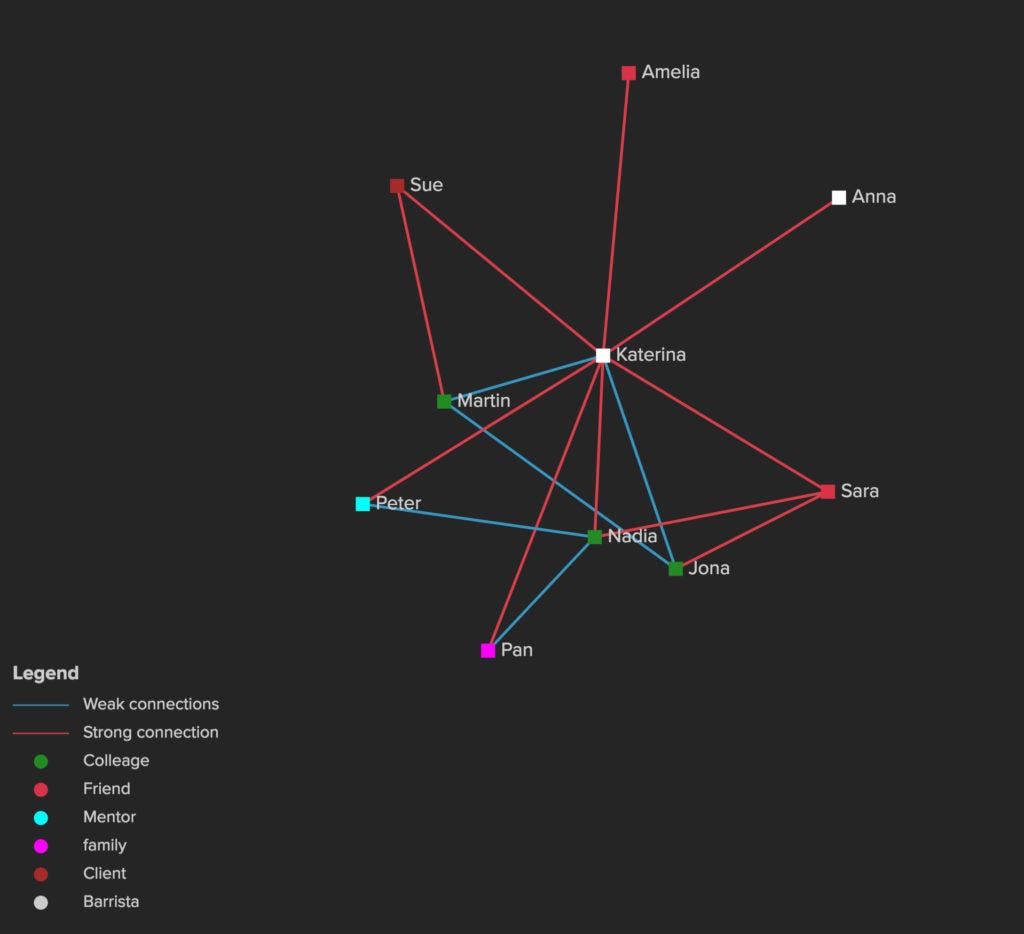Human Capital vs Social Capital
Social capital is the connections you have, and the connections your connections have. Every connection is a link between two people. Imagine this link as an invisible string between people. However, the strength of this string depends on the mutual trust between the people.

Have you ever heard the term human capital? If you are in human resources, I'll bet it has been thrown around a couple of times. What about social capital? What is your emotional response to reading those terms? Disgust at the sight of humans being equated with capital, just like buildings and machines?
If you feel disgust at the capitalistic notion captured in those words, let's be frank, yes humans add to the bottom line of companies. However, quite contrary to buildings and machines, humans are not interchangeable. You can't simply fire John and hire Sarah thinking that because they have the same area of expertise and years of experience, they will provide the same benefits to the company. John and Sarah might have the same human capital but they have different social capital.
Human capital is what you know.
Social capital is who yo know.
Human capital, or the expertise you have, is only good for a limited amount of time. It's well known that technical expertise, being good at what you do, does not equate managerial expertise. Managing people is a completely different ball game. Here, human capital is less important than social capital. But even for non-managers, social capital is important. Are you building a product? Building a company? Trying to sell something? Implementing new processes? Adapting to a remote workplace? No matter what goal you have, your social capital will influence if and how fast you reach your goals.
The reason for this is simple: Reaching goals requires input from others. Even for individual activities, let's say, learning to code or going on hiking, you are tapping into your social capital to get resources, ideas, and feedback. If you never ask for feedback, you are going to hit a wall. Working on your social capital is, therefore, more important than expanding your human capital. Of course, this does not mean to not learn any more. You still need to increase your human capital, but do not overemphasiz this over your socail capital.
What is social capital?
Social capital is the connections you have, and the connections your connections have. Every connection is a link between two people. Imagine this link as an invisible string between people. However, the strength of this string depends on the mutual trust between the people.
The term social capital was not first used by managers, but by researchers investigating communities. Communities such as those co-working retreats are aiming to build, workfrom.co tries to establish among remote workers or those more stable communities that exist in small villages and neighborhoods. A common aspect between those communities is their survival and functioning depends on "networks of strong, crosscutting personal relationships developed over time that provide the basis for trust, cooperation, and collective action" (Jacobs, 1965). Communities without social capital die, as the basis for trust, relationship, is lacking. It took some time, nearly 20 years, before the term social capital was being used in a more capitalist way by linking social capital to professional development (hence, human capital) and business firm performance.
Again, your social capital is the web of personal relationships you have with others. There is nothing capitalistic about it. On the other side, your relationships are personal and can't be taken over by a company. It's also something that you can create without investing money.
Using your social capital
So far we have talked about what social capital is. I made the point that it has nothing to do with money or reducing humans to assets. It is a resource you have to reach your goals.
If you want to use your social capital, you need to know your social capital. You can't go anywhere, without knowing where you are at the moment. Visualizing your social capital can be done prett easy with pen and paper. However, I'm suggesting a tech solution over old school method. Simply if you use technology to visualize your network, you can also use technology to calculate properties of your network. For example:
- Are you the connector in your community?
- Do you build bridge or do you keep information out?
- Are you the go-to person for all things in your community?
- What resource is not part of your community?
- How well are members of your community connected with each other?
If you decide to do it by yourself, head over to Kumu and start creating your network. Building the map of your social capital isn't too complicated. The challenge comes from drawing insights from it. NetNigma can help you not only with building your or your team's social capital, but more importantly get insights from the network to help you or your team reach new goals.
